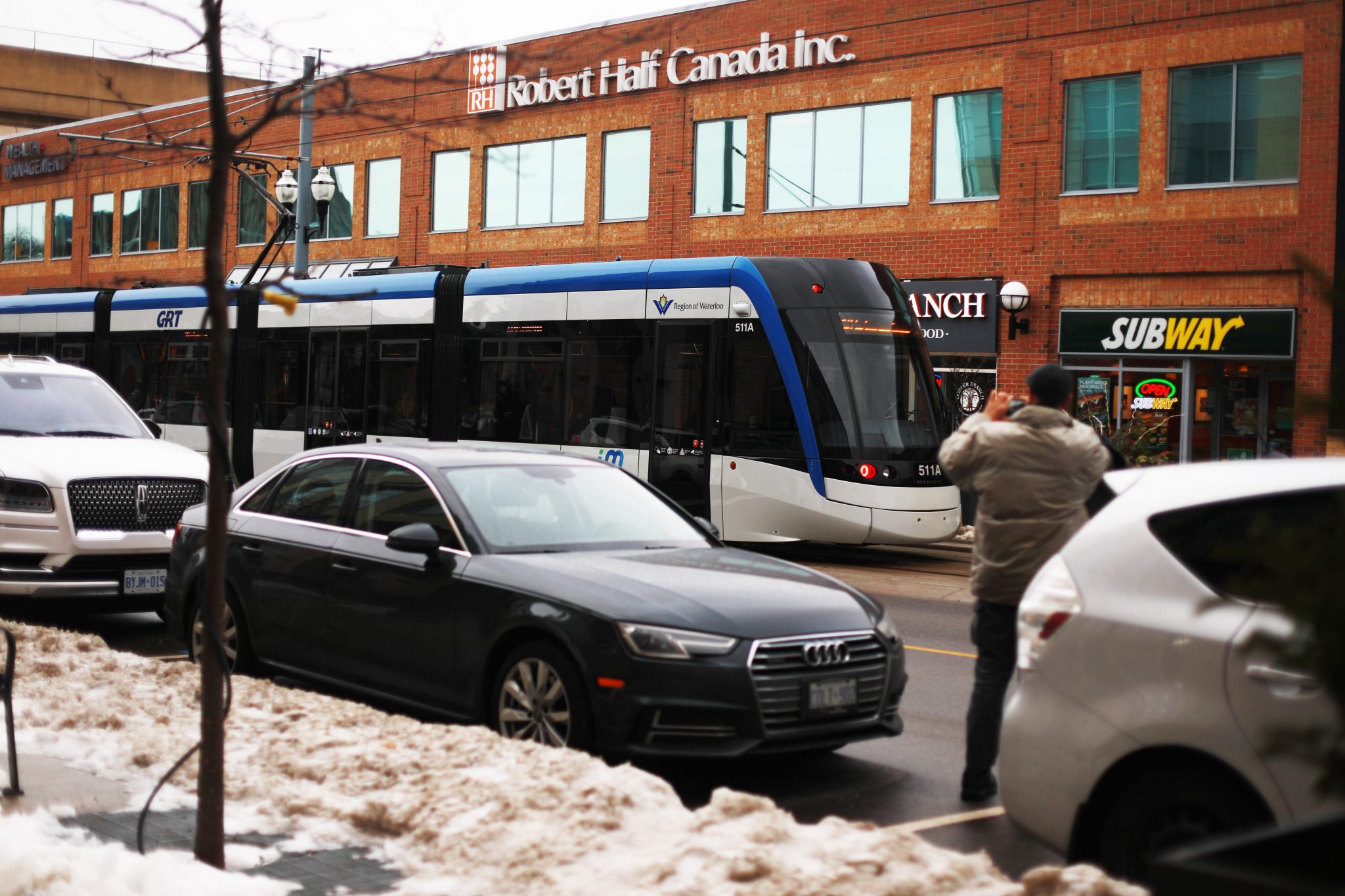
Following the Grand River Transit (GRT) bus strike, which began last Tuesday, Jan. 21, after the breakdown of discussions, talks to resume transit services began once more on Tuesday, Jan. 28 — with a tentative agreement being reached until Thursday, Jan. 30.
The union representing Grand River Transit and MobilityPLUS operators, Unifor Local 4304, made the decision to strike last week due to an inability to come to a collective agreement, which the union claimed involved issues with workplace safety.
“Just like on the first day of this strike, we remain committed to bargaining the best possible collective agreement on behalf of Unifor Local 4304 members,” said Tim Jewell, Unifor Local 4304 President, in a Jan. 27 statement.
“Transit workers deserve a safe and respectful work environment.”
Some of these demands included “improvements on driver safety, an end to heavy-handed, excessive discipline and unfettered use of video surveillance, and wages,” according to the statement.
This includes a safety barrier for drivers in order to reduce the possibilities of physical and verbal harassment. According to the Region of Waterloo, they had agreed to install these barriers on 278 GRT buses over the next three years, which will cost approximately $1.7 million.
Following a week of striking, and Tuesday’s talks, the Region of Waterloo and Unifor have come to a provisional agreement that will hopefully see the buses back in service, which may be ratified following a vote on Thursday, Jan. 30.
However, this agreement does not necessarily mean that the end of the strike will happen just yet. On Tuesday, Jan. 21, the region released a statement indicating that the previous tentative agreement had been rejected by the union.
“The Region offered a comprehensive settlement including a six percent wage increase over three years for bus operators, dispatchers and service attendants and 15 percent over three years for mechanics. The Region believes that this is fair to our employees, and is responsible to Regional taxpayers. Unfortunately, it was not accepted by the Union’s membership,” the statement read.
“We have worked hard over the last three months and especially over the last two weeks to identify and address concerns raised by the Union, including those related to safety. The Region’s priority remains achieving a negotiated agreement that includes a fair and reasonable economic package and ensures the safety and security of the community and our staff,” said Mike Murray, the region’s Chief Administrative Officer, in the statement.
Unifor representatives released a statement following Tuesday’s talks indicating that more details on the agreement will be made available to the public if the new contract is voted on and ratified.
“On the line, and throughout bargaining, members were united in their call to improve safety and working conditions. That message was clearly heard,” said Unifor National President, Jerry Dias, in a Jan. 28 statement.
“Transit workers appreciate the support that they have received from the public during this time,” Jewell said in the statement.
“We look forward to settling this dispute in order to return to serving the people of Waterloo Region.”
The Region of Waterloo, releasing a similar statement on Tuesday, seemed equally eager to come to an effective conclusion to the strike.
“The Region appreciates the public’s patience and understanding as we work towards getting the buses back in service,” the statement concluded.








Leave a Reply
You must be logged in to post a comment.